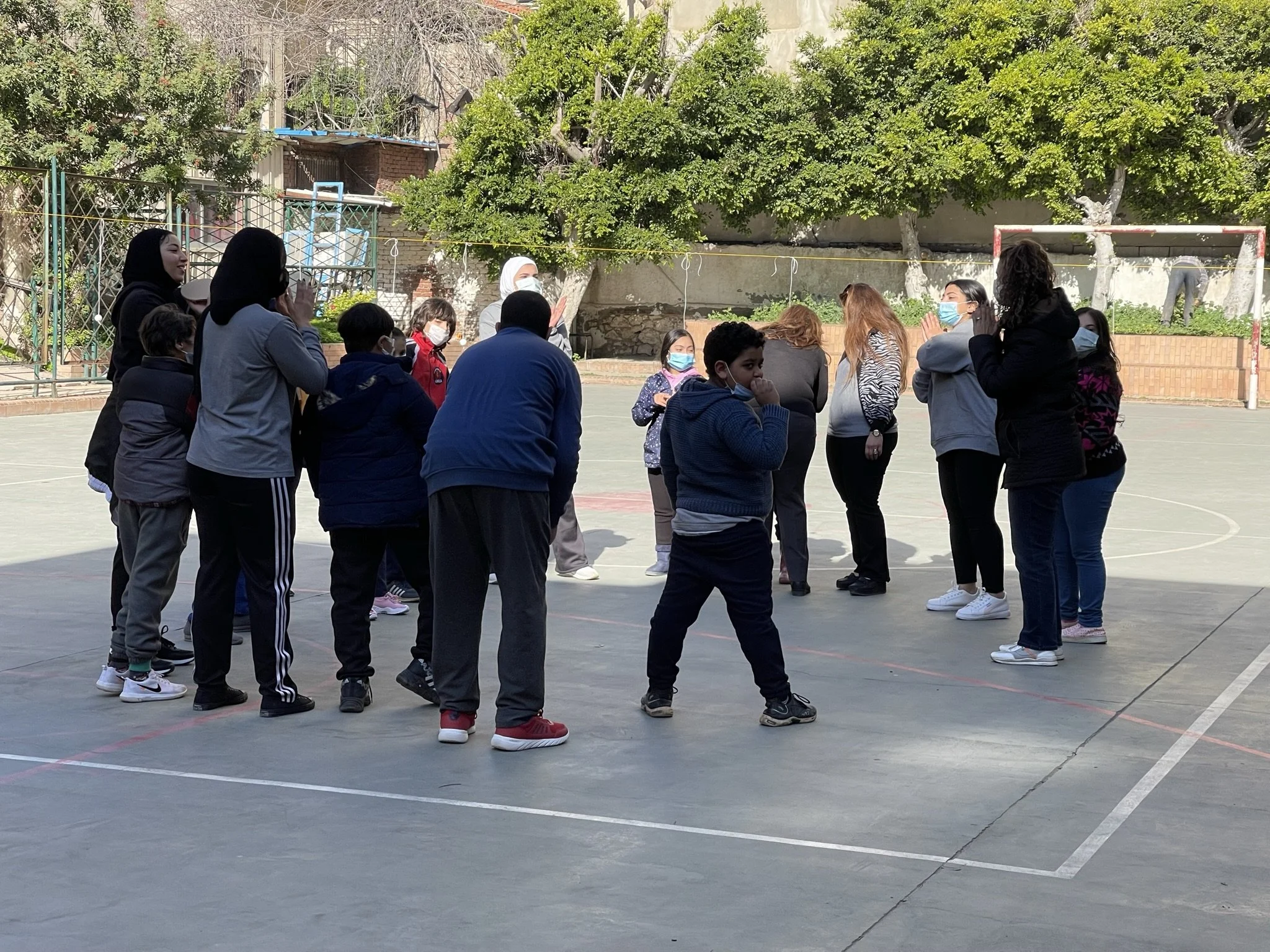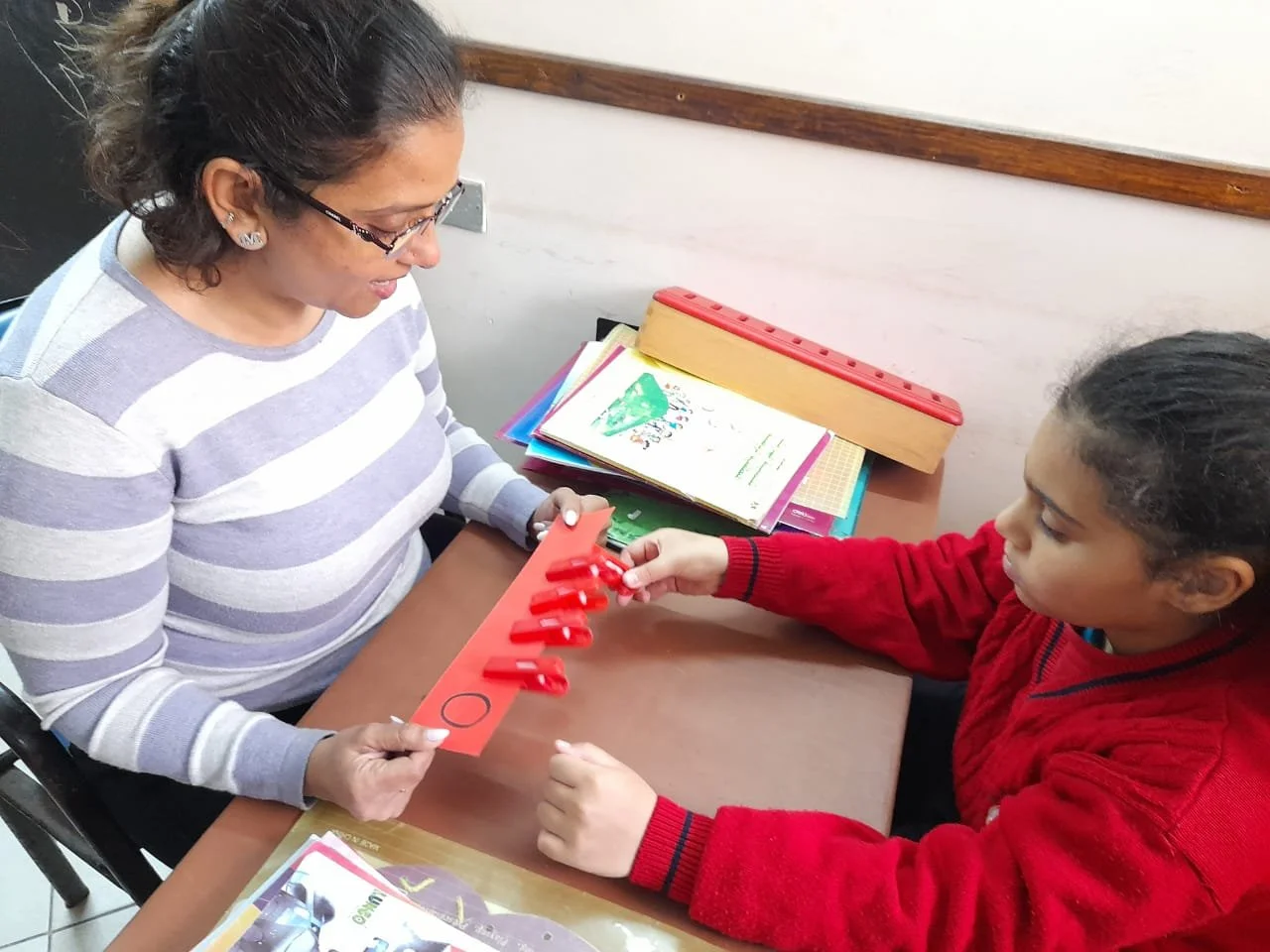Weekly devotion: How does your social network reflect your priorities?
Fairhaven School, Alexandria
Above: 1) A PE lesson; 2) A young pupil has a one-to-one session with a staff member; 3) A boy solves problems in his workbook
In Egypt, families of children with learning difficulties often struggle to find sufficient support. High-quality specialist education and rehabilitation services are in short supply – and the cost of many of these services is often prohibitively high.
Sadly, there are still misconceptions about people with disabilities in Egyptian society. The abilities of these people are often underestimated, making it difficult to find gainful employment. Stigma around disability is widespread, and many families experience a lack of support and even a sense of social isolation.
Fairhaven School in Alexandria, Egypt, addresses these issues. Funded by Embrace and run by Coptic Christians, the school offers education and vocational training to over 100 children and young people with learning disabilities. Through a personal approach to individual learning and special skills development activities, the school creates more opportunities for people with disabilities to be included in society. The school also works with the students’ home communities to tackle traditional negative attitudes.
Bible reading
Read the account of Jesus and the Samaritan woman by the well in John 4:1-42.
Thought
Social stigmatisation is nothing new. In the Gospels, people faced stigma for a plethora of reasons: sickness, disability, demon possession, gender, non-Jewish identity, and occupations such as prostitution and collecting taxes. Time and again, we read of Jesus’ loving and grace-filled interactions with people in all of these categories.
In the account of the Samaritan woman at the well, it is Jesus who initiates the conversation – breaking the social taboo of talking to a woman in public. Much could be said about their subsequent dialogue, but this quote by Ephrem the Syrian (a fourth century church father and theologian) makes for a good summary:
‘At the beginning of the conversation he [Jesus] did not make himself known to her, but first she caught sight of a thirsty man, then a Jew, then a Rabbi, afterwards a prophet, last of all the Messiah. She tried to get the better of the thirsty man, she showed dislike of the Jew, she heckled the Rabbi, she was swept off her feet by the prophet, and she adored the Christ.’*
Ask yourself: How does your own social network reflect your priorities? Do you ever initiate conversations or interactions with people who are socially stigmatised in your own context? How can we become more like Jesus?
Prayer
Father God,
We thank you that your love knows no limits and your grace has no measure. As we mediate on this, we lift before you the children who attend Fairhaven School – thank you that each one has been created in your own image. May they flourish under the care and guidance of the teachers, and may you prepare bright futures for them. We pray for the families and communities of these children – may they become increasingly inclusive and welcoming spaces. In our own lives, help us to move out of our comfort zones and embrace people on the fringes of society.
In Jesus’ name, Amen.
*Ephrem the Syrian, quoted by Kenneth Bailey, Jesus through Middle Eastern Eyes, p.215.
If you enjoyed this, you may be interested in:
Blog: Embracing autism in Egypt
In Egypt many autistic children and their families face an uphill struggle to be accepted in society and to get the support they need.
Inspired by what you read here? Share it on social (don’t forget to tag Embrace!):




